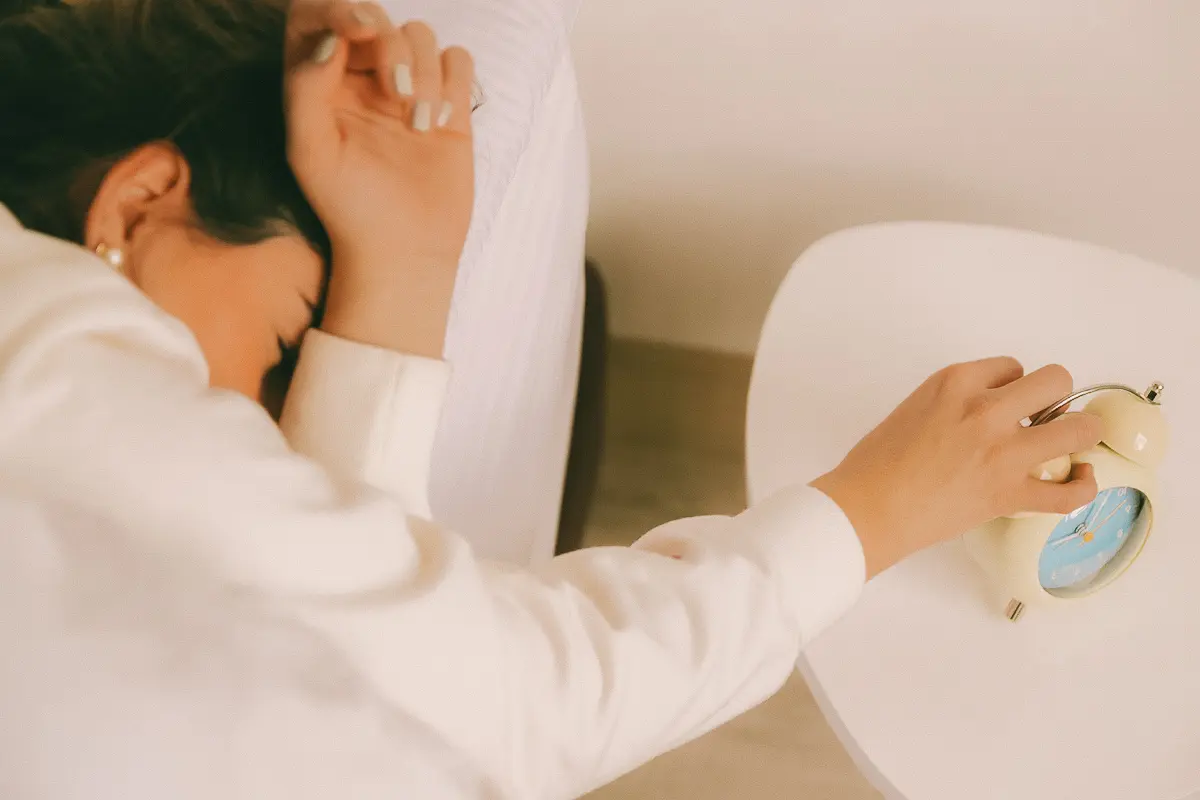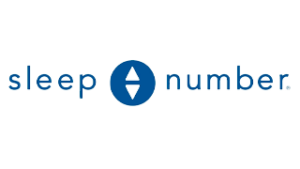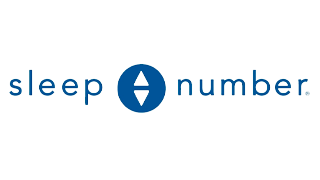Table of Contents
- We’ve spent more than 2,000 hours researching and testing sleep products and more than 150 hours testing sleep trackers specifically. We’ve also consulted more than 20 sleep experts to make our recommendations.
- Our testers evaluated more than 15 sleep trackers, and recorded our findings on a 20-question standardized testing form to identify standout features and services, document any issues with each product, and describe our personal experience with each product.
- We pay close attention to specific considerations that were identified by respondents in our two sleep surveys, one of 600 general customers and another of 600 higher-weight sleepers (250 pounds or more). The considerations we identified include price, features, and metrics tracked.
Learn more about how we test the best sleep trackers.
Key takeaways
- The Oura Ring Gen3 is our pick for the sleep tracker overall because it accurately tracks sleep and offers advanced insights into your sleep quality.
- Based on our testing and survey of sleep tracker owners, we found that people want a sleep tracker that can analyze different stages of sleep. We made sure that all the sleep trackers in our review have this feature.
- Sleep trackers can cost around $200–$600 or more, depending on style, features, and type of device.
Sleeping well is important for nearly every process in the body, and impacts our mood, brain function, and overall health. Unfortunately, nearly 40 percent of us don’t get the recommended minimum of seven hours of rest each night.
As a potential response to this sleep deprivation, one-third of people have turned to sleep-tracking devices to gain insights into their sleep habits, according to one survey.
Although sleep trackers aren’t a substitute for a sleep study or seeing a health care provider, they monitor things like movement, breathing, and heart rate, which may help people identify patterns that contribute to poor sleep quality.
“I’m a fan of sleep apps because the first step to resolving sleep disorders is to know what the root cause is,” says Lauri Leadley, a clinical sleep educator and founder of Valley Sleep Center in Mesa, Arizona. “I always recommend a sleep study to start, but patients typically find their way to us because they are tracking on their own and then take the issue to their primary care provider for answers.”
To bring you the best sleep trackers, our Handbook Team analyzed dozens of sleep-tracking devices—including rings, smartwatches, and even smart beds—based on accuracy, ease of use, and tracking features.
Sleep trackers
Sleep trackers can give you information which can help you make healthier choices, but they shouldn’t replace the advice of a doctor or other medical professionals.
5 best sleep trackers of 2024
- Oura Ring Gen3: Best overall sleep tracker
- WHOOP: Best sleep tracker wristband
- Garmin Forerunner 965: Best for fitness and sleep tracking
- Sleep Number: Best non-wearable sleep tracker
- Google Pixel Watch 2: Best sleep tracker for Android users
Oura Ring Gen3: Best overall sleep tracker
Why Oura Ring Gen3 is our pick for best overall sleep tracker
The Oura Ring Gen3 is our choice for best sleep tracker overall because our testers and survey respondents give excellent feedback on its sleep-tracking features and accuracy. It’s also comfortable, discreet, and lightweight, weighing just 3.3–5.2 grams—less than a U.S. quarter.
Oura analyzes your sleep by measuring your movement, resting heart rate, body temperature, and time spent in different sleep stages, including light, deep, and rapid eye movement (REM).
Using this data, Oura calculates a sleep score that shows your total sleep time, sleep efficiency (the time you spend asleep), and latency (how long it takes you to fall asleep). The device can’t diagnose sleep apnea A condition that causes you to stop breathing periodically while you are asleep. , but it tracks blood oxygen levels, which may indicate snoring or breathing disturbances related to the condition.
A 2024 validation study estimates that the device agrees with polysomnography Polysomnography is also known as a sleep study. It measures your sleep cycles and sleep stages by recording things like blood oxygenation, brain waves, breathing effort, electrical activity of your muscles, and heart rate. —the gold standard of sleep evaluation—79 percent of the time.
One respondent to our survey of people who use sleep trackers, who has owned the Oura Ring Gen3 for more than six months, highlights its temperature-monitoring capabilities. “When I am sick, the ring detects an overnight increase in body temperature and alerts me the next morning to visit a health care provider,” they say.
Nerina Ramlakhan, PhD, a sleep expert and neurophysiologist at Oak Tree Mobility in Bristol, England, adds, “I wear an Oura ring and find the resilience and restoration scores helpful. It shows if I’m in restoration, relaxed, or stressed mode, but sometimes, trackers like these may not reflect how you’re truly feeling. Your tracker may say you didn’t get good sleep, but maybe you feel great. Check in with yourself before you check your data.”
Who may want to use Oura Ring Gen3: People who want to accurately track their sleep, activity, and other health data without wearing a bulky wrist device.
Who may want to avoid Oura Ring Gen3: Those who dislike wearing rings or prioritize activity tracking and receiving alerts from their device.
Oura Ring 4
In October 2024, Oura announced the new Oura Ring 4. It has a longer battery life (up to eight days), is made completely from titanium (the Gen3 is made only partly from titanium), and has smaller, less noticeable sensors to record your information. It starts at $349 while the Oura Ring Gen3 starts at $299. We will test the Oura Ring 4 ourselves and update this review after.
WHOOP: Best sleep tracker wristband
Why WHOOP is our pick for best sleep tracker wristband
WHOOP is our top pick for best sleep-tracking wristband thanks to its highly accurate sleep- and heart rate-tracking capabilities. WHOOP monitors heart rate, heart rate variability The amount of time between your heartbeats. , and activity patterns to automatically detect when you fall asleep and wake up.
Similar to the Oura ring, WHOOP also provides detailed insights into how long you spend in light sleep, REM Rapid eye movement (REM) sleep occurs when a person’s eyes move rapidly while closed. Most dreams occur during this sleep stage. sleep, and deep sleep, as well as the time you spend awake.
One survey participant, who has owned a WHOOP sleep tracker for more than two years, says they appreciate how the device accurately tracks their metrics and provides helpful insights on how certain lifestyle factors influence their sleep quality. “My sleep has improved since using the WHOOP wristband. I have more data about what works best for me, including what time to go to sleep and how many hours to sleep,” they say.
A small 2020 study found WHOOP to be accurate at measuring sleep, breathing rate, and heart rate, and helpful for getting better sleep.
WHOOP requires a 12-month commitment, which can be paid monthly or upfront. The device won’t work without an active membership, so you’ll need to renew to keep using it. Financing is available through Klarna, which can lower your monthly cost to $22. But be aware that Klarna may charge up to 25 percent interest depending on your credit score.
Who may want to use WHOOP: People who are looking for advanced insights into their sleep patterns and want to track improvements in athletic performance.
Who may want to avoid WHOOP: Those interested in a sleep tracker that counts steps or has a visual display.
Garmin Forerunner 965: Best for fitness and sleep tracking
Why Garmin Forerunner 965 is our pick for fitness and sleep tracking
The Garmin Forerunner 965 is our top choice for best fitness and sleep tracking device because it has advanced sleep tracking features to help you understand your sleep patterns and it tracks your activity to monitor your fitness.
Like other sleep trackers in our review, the Garmin Forerunner 965 series uses a combination of heart rate, heart rate variability, breathing rate, and body movement to recognize when you fall asleep and when you wake up. It then provides a sleep score (zero to 100) that summarizes your sleep quality, identifies what factors may have contributed to a lower score, and offers recommendations for improvement.
Testers love the Forerunner 965’s fitness tracking capabilities. The watch gives you a ‘readiness score’ every morning, which indicates how ready your body is for a workout. Testers also appreciate the automated Garmin Coach that tracks your progress against goals you set, the daily suggested workouts based on past physical activity, and the full-color, GPS mapping to give you directions when running.
A survey respondent shares, “My Garmin Forerunner 965 gives me a morning report that tells me how long I slept and helps me determine how ‘ready’ my body is for working out, which is pretty neat. The sleep insights are pretty clear once you figure out where to go to see them.”
We are impressed with the battery life of the Garmin Forerunner 965, which lasts up to seven days when using sleep-tracking features and up to 31 days in GPS mode only (a lower-energy mode that still lets you use GPS for mapping workouts).
Who may want to use Garmin Forerunner 965: Athletes and fitness enthusiasts who want a sleep tracker equipped with advanced fitness-tracking capabilities.
Who may want to avoid Garmin Forerunner 965: People looking for a simple, discreet sleep tracker.
From our tester
Our testers did encounter some minor issues with setting up and using the Garmin Forerunner 965, as they found it slightly complicated. If you prefer a simpler sleep tracker, we recommend the Oura Ring Gen3 or WHOOP.
Sleep Number: Best non-wearable sleep tracker
Why Sleep Number is our pick for best non-wearable sleep tracker
Sleep Number offers a smart mattress with sensors that collect data on your sleep patterns, making it our top pick for best non-wearable sleep tracker. Be aware that this tracker requires the purchase of a Sleep Number smart mattress.
The Sleep Number mattress uses sensors to measure your heart rate, breathing, movement, and how often you get out of bed. These measurements are then used to create a daily SleepIQ score that reflects your sleep quality that night.
A small 2022 study finds the mattress to be fairly accurate at measuring how long it takes to fall asleep, how often you wake up during the night, your total sleep time, and your sleep efficiency.
Over time, as the mattress tracks your sleep, it builds an average score to help you understand your sleep patterns. A higher score indicates good sleep, while a lower score suggests room for improvement.
A survey respondent, who has owned a Sleep Number smart bed for more than one year, enjoys being able to track heart rate, restlessness, and deep sleep without a wearable device. They find the bar graphs and charts helpful for monitoring changes over time but mention the sleep score system could be improved.
“If I could change anything about Sleep Number, I’d make the sleep/wake times customizable. Right now, it wants me to go to bed and wake up at specific times to get the best scores. But everyone is different, and I don’t fall into their recommended sleep/wake schedule,” they note.
For more information, see our Sleep Number mattress review.
Who may want to use Sleep Number: Anyone who is looking for a comfortable mattress with built-in sleep tracking features.
Who may want to avoid Sleep Number: People who already have the best mattress for their sleep style and those looking for a budget-friendly sleep monitoring device.
An affordable option
While Sleep Number is our pick for the best non-wearable sleep tracker, if you want a more affordable device, consider the Withings Sleep Tracking Mat. This mat has sensors and goes under your mattress. It starts at $129 and has done fairly well in accuracy studies.
Google Pixel Watch 2: Best sleep tracker for Android users
Why Google Pixel Watch 2 is our choice for best sleep tracker for Android devices
The Google Pixel Watch 2 is our choice for best for Android because it offers advanced sleep and activity tracking and seamlessly syncs to Android devices.
Like other sleep trackers, it uses sensors (located on the back of the watch) to monitor your movement, heart rate, and skin temperature while you’re sleeping. Using this information, the watch creates a personalized sleep score in the app based on how long you spend in different sleep stages and how often you wake up.
A recent study highlights the original Google Pixel Watch’s accuracy at detecting deep sleep, the stage of sleep that helps you feel refreshed when you wake up.
A survey respondent says, “With Fitbit Premium, you’ll see a ‘sleep profile’ that matches your sleep to an animal. One month, I was a dolphin—didn’t sleep very much—which motivated me to improve my habits.”
The premium subscription also includes a restoration score, which provides insights into how restful your sleep is. This score is based on your sleeping heart rate, resting heart rate, and how much you toss and turn. A higher restoration score means your sleeping heart rate is lower than your daytime resting heart rate.
If you purchase the Google Pixel Watch 2 from the Google website, you’ll receive Fitbit Premium free for six months.
Who may want to use Google Pixel Watch 2: Android users who are looking for detailed sleep and activity tracking.
Who may want to avoid Google Pixel Watch 2: People with iPhones and those who don’t want to wear a watch to sleep.
How we test and choose sleep products
The Handbook Team has researched 30+ sleep trackers online and in person and hand-selected 15 (and counting) of the best trackers to test. We’ve also surveyed sleep tracker users to understand the buying process and how their trackers have impacted their sleep quality, physical health, and mental wellness.



Firsthand testing experience
The Handbook Team hand-tests every sleep product we review. We evaluate brands and models by recording our findings on a 20-question standardized testing form to identify standout features and services, document issues with each product, and describe our personal experience using each product.
For this review of the best sleep trackers, we focus on devices that provide accurate results that are easy to read and offer valuable information people can actually use.
Surveys and interviews
We pay close attention to specific considerations that sleepers of all ages seek, as identified by respondents in our surveys of 1,200 total mattress owners.
For example, we discover in our survey that respondents with young children value the sleep trackers’ guidance on when to fall asleep so they can plan their bedtime for the window that provides them the highest quality sleep. “I love learning about my sleep cycles,” one respondent says. “With three kids, I now know that I have a specific window in which if I go to sleep, I tend to have a better night’s rest overall than if I go to bed even 20 minutes after that.”
Objective and honest ratings
We use information from our surveys and expert interviews to determine the most important features in our brand and sleep tracker ratings.
Learn more about our sleep product testing and review methodology.
How to choose a sleep tracker
With so many sleep-tracking devices available, finding the best one for you can feel overwhelming. When choosing a sleep monitor, consider features like comfort, accuracy, and ease of use. Below are a few key factors to keep in mind before purchasing a sleep tracker.
Type of sleep tracker
The first thing to think about is whether you can sleep comfortably with a watch, ring, or other wearable device or if you prefer a non-wearable option like a mattress sensor. Wearables typically offer detailed sleep insights and fitness tracking all day, while non-wearables may be more comfortable for those who prefer not to wear devices at night.
Tracking capabilities
The tracking capabilities offered by sleep trackers can vary greatly from brand to brand. Some sleep trackers may only track basic metrics like how long you sleep, while others include advanced tracking features that offer insights into sleep stages, breathing rate, and overall sleep quality.
Consider whether you want a sleep tracker that can also count steps, monitor your heart rate during the day, or track other fitness activities. This can save you from switching between two different devices if you are interested in tracking various health-related data, both day and night.
Cost
Sleep trackers vary in price, from budget-friendly options with simple sleep-tracking features to more expensive ones with advanced tracking capabilities. Consider your budget and the features that are important to you to decide if they are worth the investment. The wearable sleep trackers in this review range in price from $200–$600 or more (this range does not include the sleep-tracking feature in Sleep Number beds).
What is a sleep tracker?
A sleep tracker is a device that uses sensors to monitor movement, heart rate, and breathing. It then uses an algorithm to provide insights into how long you sleep, the quality of your sleep, and how much time you spend in different sleep stages. They’re most commonly worn on your body—either on your wrist or as a ring—but can also be integrated into your mattress or placed beside your bed.
Our final verdict
Our overall pick for the best sleep-tracking device is the Oura Ring Gen3. It receives excellent feedback from current users and it was our testers’ favorite. For people who prefer a wrist-worn sleep tracker, consider the WHOOP, Garmin Forerunner 965, or Google Pixel Watch 2 for Android users.
If you’re looking for a mattress that helps you sleep better and tracks your sleep, we suggest checking out Sleep Number’s smart beds. These beds have sensors that track your movement, heart rate, and breathing rate to provide insights without the need for a wearable device.
Keep in mind that sleep trackers cannot diagnose sleep apnea, insomnia, or any other sleep challenges. If you are experiencing difficulty falling asleep and/or staying asleep, you may want to consult with your primary care doctor, a sleep psychologist, or other board-certified behavioral sleep specialist.
Compare the best sleep trackers of 2024
| Starting price | $349, plus a $5.99 monthly subscription (required) | $239 | $599 | $699 | $249.99, plus a $9.99 per month for a Premium subscription (optional) |
| Device type | Ring | Wristband | Smartwatch | Mattress app | Smartwatch |
| Compatibility | iOS, Android | iOS, Android, desktop computer | iOS, Android | iOS, Android, desktop computer | Android |
| Warranty | 365 days | Lifetime | 365 days | 15 years | 365 days |
| Trial period or returns | 30-day trial | 30-day trial | No trial; returns accepted within 30 days of purchase | 100-night trial | No trial; returns accepted within 15 days of purchase |
| Best for | Best overall | Best wristband | Fitness and sleep tracking | Best non-wearable | Android users |
Frequently asked questions
Yes, sleep trackers are accurate. Research shows that some sleep trackers, although not perfect, can reasonably estimate sleep duration and time spent in different sleep stages, although accuracy can vary between devices. Sleep trackers should not be used in place of a professional sleep study. If you use a sleep tracker and notice low oxygen levels at night, you may want to visit a health care provider for further evaluation.
Sleep trackers are divided into three main categories: wearables, nearables, and airables. Wearable devices, like smartwatches, wristbands, and rings, use sensors under the device to track sleep. Nearable devices, like mattress pads, are placed near your body without direct contact to notice small movements while you sleep. Airable devices use cell phones to check your sleep by listening with built-in microphones or using other environmental sensors.
A sleep tracker may be a good fit for someone who occasionally experiences sleep issues and wants to understand their sleep patterns. People who regularly have difficulty sleeping and those who are anxious about sleep should talk with a health care provider before purchasing a sleep tracker. A recent survey notes that some people report increased anxiety after using a sleep tracker.
Also, in some cases, these trackers can drive an unhealthy obsession with getting a good night’s sleep. This condition, known as orthosomnia, tends to affect perfectionists or type A personalities who become overly focused on achieving perfect sleep metrics.
- National Institute of Neurological Disorders and Stroke. (2024, September 5). Brain basics: Understanding sleep. Link
- Centers for Disease Control and Prevention. (2024, May 14). FastStats: Sleep in adults. Link
- American Academy of Sleep Medicine. (2023, November 15). One in three Americans have used electronic sleep trackers, leading to changed behavior for many. Link
- Svensson, T., Madhawa, K., Nt, H., Chung, U., & Svensson, A. K. (2024). Validity and reliability of the Oura Ring Generation 3 (Gen3) with Oura sleep staging algorithm 2.0 (OSSA 2.0) when compared to multi-night ambulatory polysomnography: A validation study of 96 participants and 421,045 epochs. Sleep Medicine, 115, 251–263. Link
- Berryhill, S., Morton, C. J., Dean, A., Berryhill, A., Provencio-Dean, N., Patel, S. I., Estep, L., Combs, D., Mashaqi, S., Gerald, L. B., Krishnan, J. A., & Parthasarathy, S. (2020). Effect of wearables on sleep in healthy individuals: A randomized crossover trial and validation study. Journal of Clinical Sleep Medicine, 16(5), 775–783. Link
- Siyahjani, F., Garcia Molina, G., Barr, S., & Mushtaq, F. (2022). Performance evaluation of a smart bed technology against polysomnography. Sensors, 22(7), 2605. Link
- Lee, T., Cho, Y., Cha, K. S., Jung, J., Cho, J., Kim, H., Kim, D., Hong, J., Lee, D., Keum, M., Kushida, C. A., Yoon, I.-Y., & Kim, J.-W. (2023). Accuracy of 11 wearable, nearable, and airable consumer sleep trackers: Prospective multicenter validation study. JMIR MHealth and UHealth, 11, e50983. Link
- Driller, M. W., Dunican, I. C., Omond, S. E. T., Boukhris, O., Stevenson, S., Lambing, K., & Bender, A. M. (2023). Pyjamas, Polysomnography and Professional Athletes: The Role of Sleep Tracking Technology in Sport. Sports (Basel, Switzerland), 11(1),14. Link














